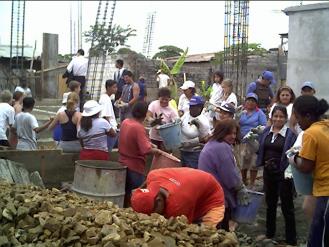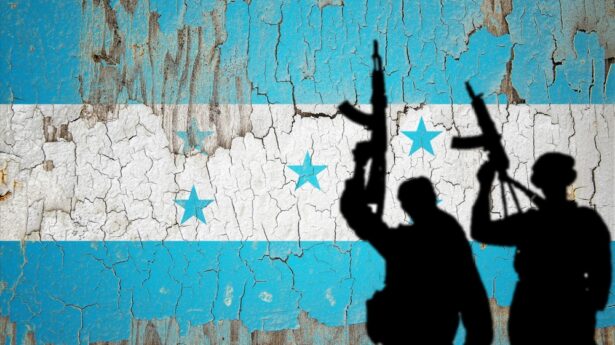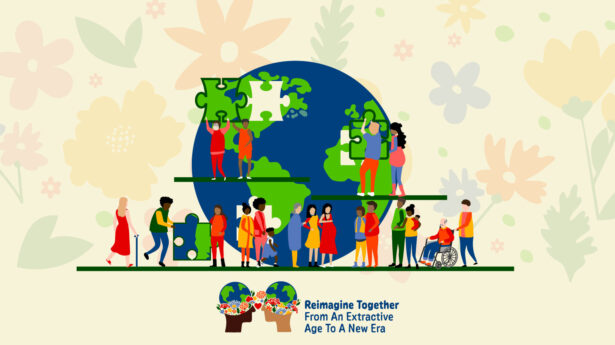The Unitarian Universalist Service Committee advances human rights through grassroots collaborations.
UUSC Stands with the People of Ecuador in Wake of Disaster

April 20, 2016
At 7 p.m. on Saturday night, April 16, a devastating 7.8-magnitude earthquake struck the northern coastal region of Ecuador, trapping hundreds of people, collapsing buildings and bridges, and magnifying the suffering of many poor and marginalized communities. Wednesday morning, April 20, another magnitude 6.1 aftershock struck the same area. UUSC is working with our partners at the Asociación Movimiento Mi Cometa in Ecuador to provide immediate relief to affected communities, paying special attention to such vulnerable groups as ethnic and tribal minorities, refugees, women, and children.
The two earthquakes —the deadliest to strike Ecuador since 1987 – have so far claimed at least 500 lives and injured more than 2,500 people. Both numbers are expected to rise in the coming days, as more than 1,700 persons remain missing. Moreover, as many as 1,500 structures have collapsed due to the earthquake, leaving over 20,000 people without homes and in need of temporary shelters. Those Ecuadorans living in poorly constructed dwellings and older structures dating from before improved building codes – places where a disproportionately large number of Colombian refugees, ethnic minorities, and other marginalized populations live – were particularly at risk. Widespread power outages in affected parts of the country have left thousands without electricity, heightening the vulnerability of women and children to sexual and gender-based violence every night.
UUSC’s existing partners and allies in Ecuador are among those affected by the disaster and are well-positioned to respond. Mi Cometa has been working for the better part of a decade with UUSC support to uphold the human right to water, empowering poor, urban, and marginalized communities to claim their rights under Ecuador’s constitution and to engage in their society’s decision-making about access to common resources. This work has taken them to some of the same coastal regions that have been most severely affected by the earthquake.
UPDATE
In response to the humanitarian disaster, longtime UUSC partner organization Mi Cometa launched the “Mision Esperanza” (Mission Hope) Project to deliver both urgent and strategic humanitarian assistance to two communities affected by the earthquake. With an emergency grant from UUSC, Mi Cometa was able to accomplish an incredible amount of work in a short period of time. Highlights include:
- Conducting a participatory diagnostic assessment of the impact of the earthquake in the city of San Jose de Chamanga in Esmeraldes Province.
- Sharing the results of the assessment in meetings with local authorities, along with formal and informal community leaders.
- Collecting over 250 quintals (2,750 tons) of donated food, water, and clothing from the surrounding urban communities and distributing it to people in need.
- Securing two donated trucks from local businesses to transport aid to affected communities.
- Arranging for the performance of six music and theater performances for children in the affected areas.
- Conducting 30 interviews with local leaders to hear their concerns and using this information to able to amplify their voices by put together a book of personal stories about the disaster.
- Using Facebook and Twitter to recruit volunteers and publicize their activities
Still, several challenges remain, according to César Cárdenas of Mi Cometa. These include clarifying the extent of the current humanitarian crisis, since the government of Ecuador is spreading propaganda that it was well-prepared to handle the disaster. Also, the “official shelters” established for those left homeless by the earthquake are failing to take into consideration local customs and culture, and have imposed a kind of martial law that infringes on the human rights of the people housed in them.
But even with these challenges, much is being done to not only respond to the immediate needs of earthquake survivors, but to help build longer-term resilience in the community. “Mi Cometa’s strong networks within the earthquake-affected communities and its successful track record of grassroots organizing makes them well-positioned to respond to recovery efforts,” said Jillian Tuck, UUSC’s Senior Program Leader for Rights at Risk. “Their ‘Mision Esperanza’ project uses participatory decision-making to address the most urgent needs of the community, and to ensure that all have equal access to humanitarian aid.”
With an eye toward economic and social recovery, Mi Cometa will continue to provide assistance to the people affected by the April earthquake, along with employment training, psychological counseling, and other community-building services, as part of its ‘Mision Esperanza’ Project.

